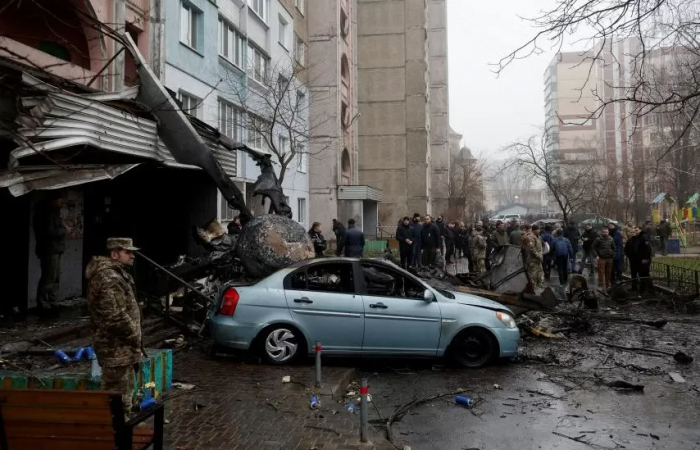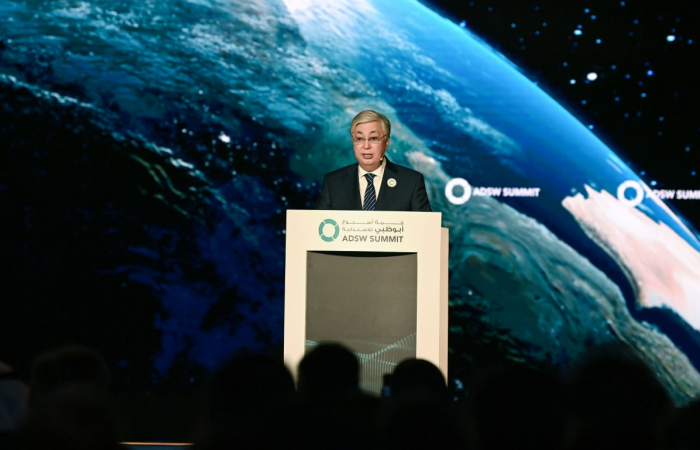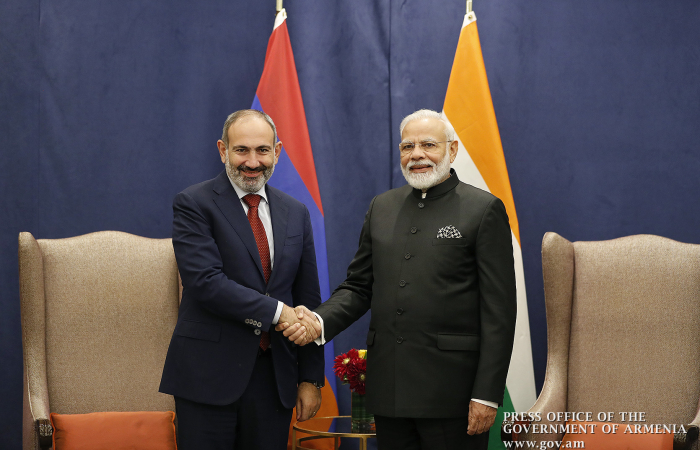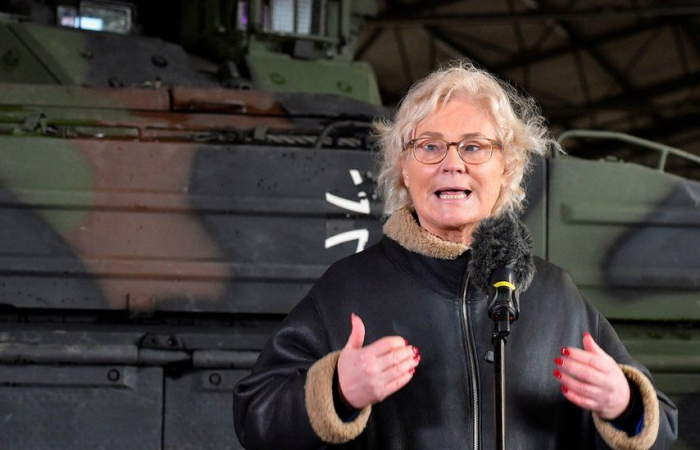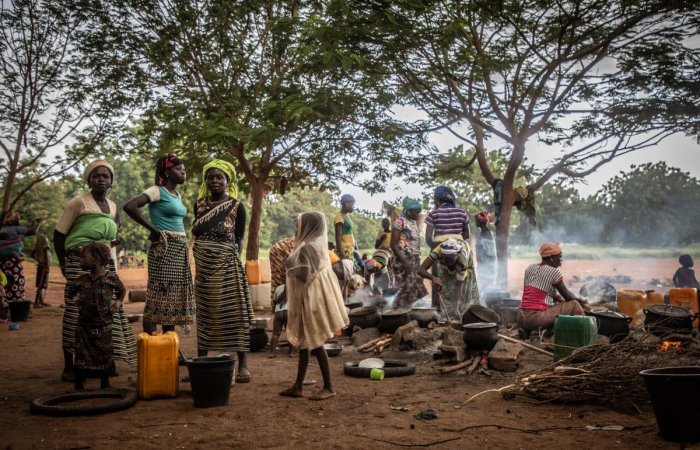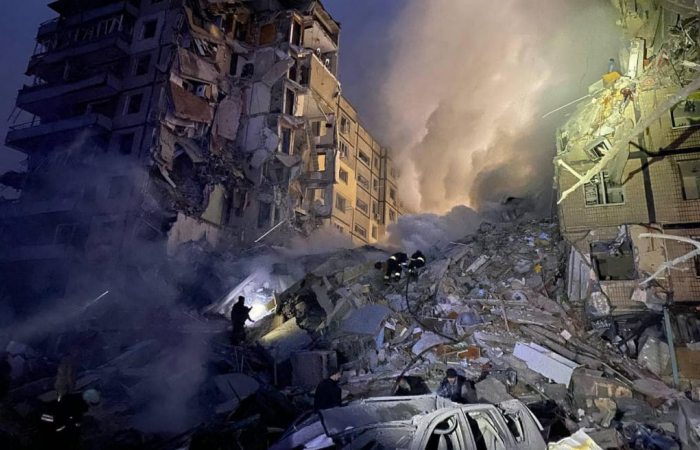Trending
Helicopter tragedy in Ukraine: Ministers and one child among the casualties after a helicopter crash
18 January 2023
Fourteen people have been killed, including Ukraine's interior affairs minister, after a helicopter crashed beside a nursery in an eastern suburb of the capital Kyiv. One child is among the dead.
The interior minister, Denys Monastyrsky, was with eight others in the helicopter.
His first deputy minister and the state secretary also died, officials said, when the helicopter came down in the suburb of Brovary.
The 42-year-old interior minister was a prominent member of President Volodymy Zelensky's cabinet and played a key role in updating the public on casualties caused by Russian missile strikes since Ukraine was invaded in February 2022.
National police chief Ihor Klymenko wrote on Facebook that the helicopter belonged to Ukraine's state emergency service.
Monastyrsky is the highest profile Ukrainian casualty since Russia's war began, although there is no indication that the crash was anything more than an accident.
The deputy head of Ukraine's presidential office, Kyrylo Tymoshenko, said the minister had been en route to a war "hot spot" when his helicopter went down.



